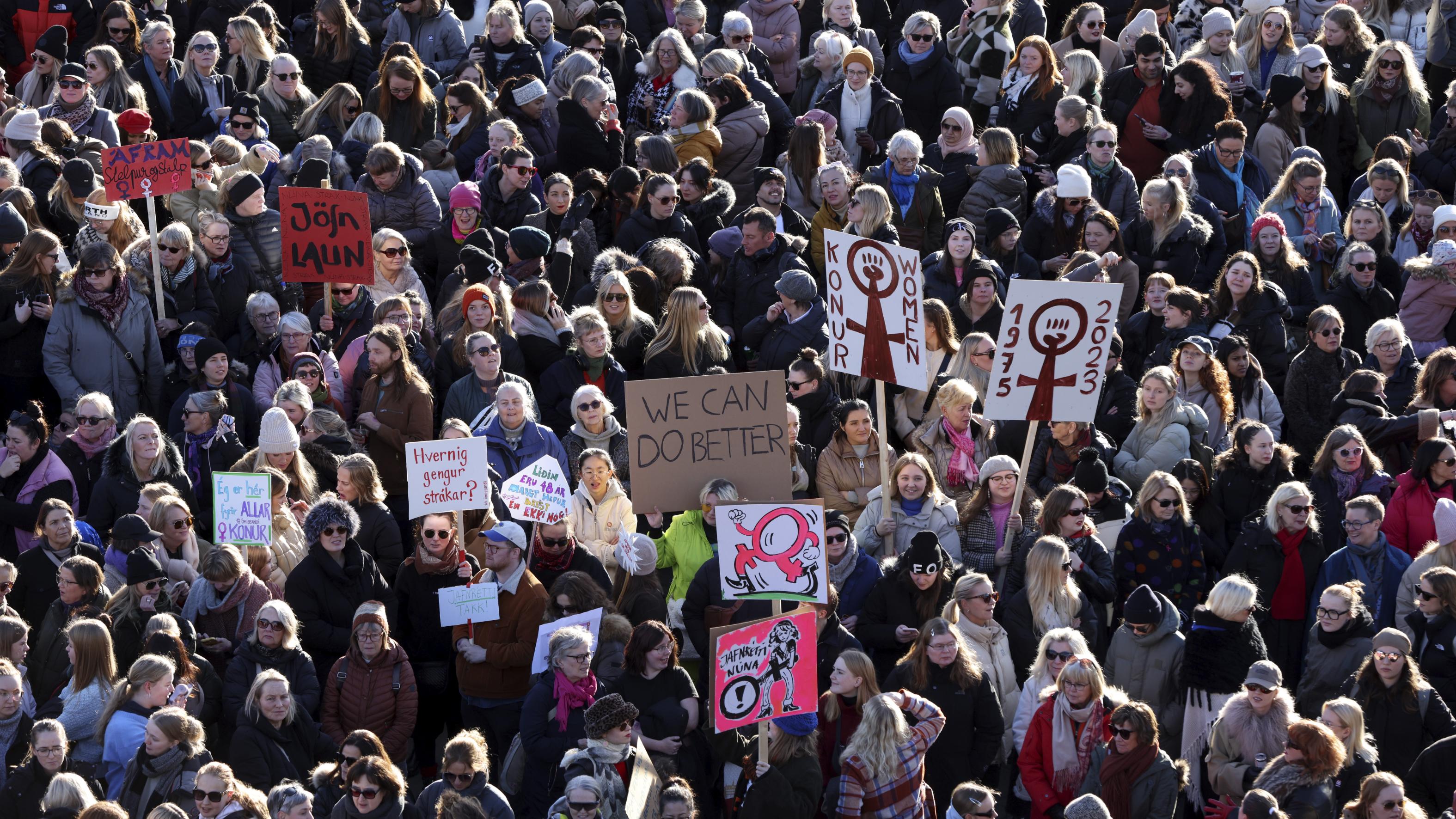 People across Iceland gather during the women's strike in Reykjavik, Iceland, Oct 24, 2023. (PHOTO/AP)
People across Iceland gather during the women's strike in Reykjavik, Iceland, Oct 24, 2023. (PHOTO/AP)
HELSINKI - A national women's strike, also known as Women's Day Off, took place in Iceland on Tuesday, marking the sixth of its kind since the inaugural event in 1975.
Initially centered around addressing unequal pay, the movement has now expanded its focus to include such issues as gender-based violence, mistreatment of women, as well as the concept of "the third shift," i.e. the unpaid work women perform at home.
ALSO READ: New Zealand govt pledges gender pay gap reporting
The approximately 40 organizations calling for the strike included the federation of public workers unions (BSRB), Women in Film and Television Iceland, and the Icelandic Nurses' Association
In a national radio interview, Icelandic Prime Minister Katrin Jakobsdottir said she was concerned about the slow progress in achieving gender equality. She, too, stayed away from work on Tuesday.
In a departure from typical labor disputes, many employers, although not all, committed to paying the strikers their regular wages, the Icelandic National Broadcasting Service (RUV) reported. Most of the country's schools remained closed on Tuesday.
In previous strikes, women explicitly illustrated the discrepancy in wages for a day's work by leaving their jobs earlier than their regular work hours.
ALSO READ: Engaging fathers vital for gender equality
The approximately 40 organizations calling for the strike included the federation of public workers unions (BSRB), Women in Film and Television Iceland, and the Icelandic Nurses' Association.


